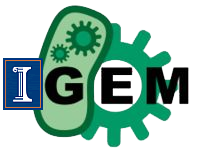Team:Illinois
From 2008.igem.org
| Line 27: | Line 27: | ||
<html><a href="https://2008.igem.org/Team:Illinois/Antibody_GPCR_Fusion"><img src="https://static.igem.org/mediawiki/2008/f/f5/GPCRbutton.png" height="350"width="316"></a> <html><a href="https://2008.igem.org/Team:Illinois/Antibody_RTK_Fusion"><img src="https://static.igem.org/mediawiki/2008/a/a5/RTKbutton.png" height="350"width="316"></a></html> <html><a href="https://2008.igem.org/Team:Illinois/Bimolecular_Fluorescence_Biosensor"><img src="https://static.igem.org/mediawiki/2008/0/04/BiFbutton.png" height="350"width="316"></a></html> | <html><a href="https://2008.igem.org/Team:Illinois/Antibody_GPCR_Fusion"><img src="https://static.igem.org/mediawiki/2008/f/f5/GPCRbutton.png" height="350"width="316"></a> <html><a href="https://2008.igem.org/Team:Illinois/Antibody_RTK_Fusion"><img src="https://static.igem.org/mediawiki/2008/a/a5/RTKbutton.png" height="350"width="316"></a></html> <html><a href="https://2008.igem.org/Team:Illinois/Bimolecular_Fluorescence_Biosensor"><img src="https://static.igem.org/mediawiki/2008/0/04/BiFbutton.png" height="350"width="316"></a></html> | ||
| + | |||
| + | <div align="center"> | ||
| + | <html> | ||
| + | <td><embed src="http://www.youtube.com/v/6tQ7ciHG3vk&hl=en&fs=1" type="application/x-shockwave-flash" allowfullscreen="true" width="425" height="344"></embed></td> | ||
| + | </html> | ||
| + | </div> | ||
| - | |||
| - | |||
| - | |||
| - | |||
<br> | <br> | ||
<br> | <br> | ||
Revision as of 04:17, 29 October 2008
| Home | Team | Project | Notebook | Research Articles | Parts | Protocols | Pictures |
We are the first IGEM team here at Illinois and we are very excited to be a part of the action. We have a diverse background that draws on talent from across campus. To learn more about us check out the Team page.
Our projects have one unifying motivation: cheap and robust detection of pathogens. There is a real need in the third world for simple and effective pathogen detection. These regions of the world lack the basic health infrastructure to treat many common diseases. In addition, sanitation measures that we often take for granted are substandard or completely lacking in many parts of the world. Because of these two factors, there is a large need for water quality monitoring to detect and prevent the spread of disease. Our projects focus on three different but related techniques for detecting a pathogen, specifically the cholera toxin. To read up on the details of our projects visit the Project page.
IGEM has been a great experience for all of us and we are really looking forward to the jamboree. Hope to see you there!
Special thanks to:
| Home | Team | Project | Notebook | Research Articles | Parts | Protocols | Pictures |
 "
"










